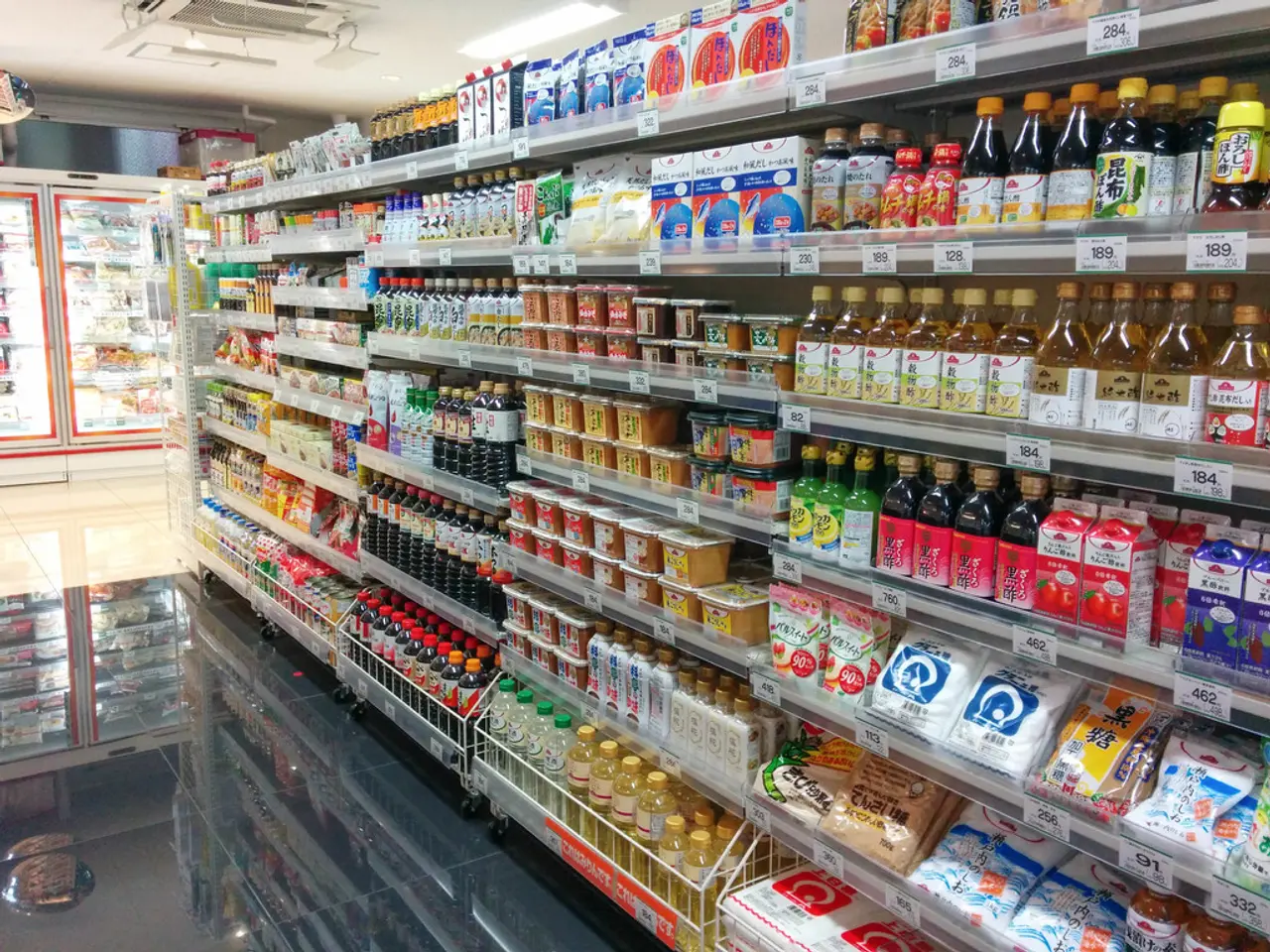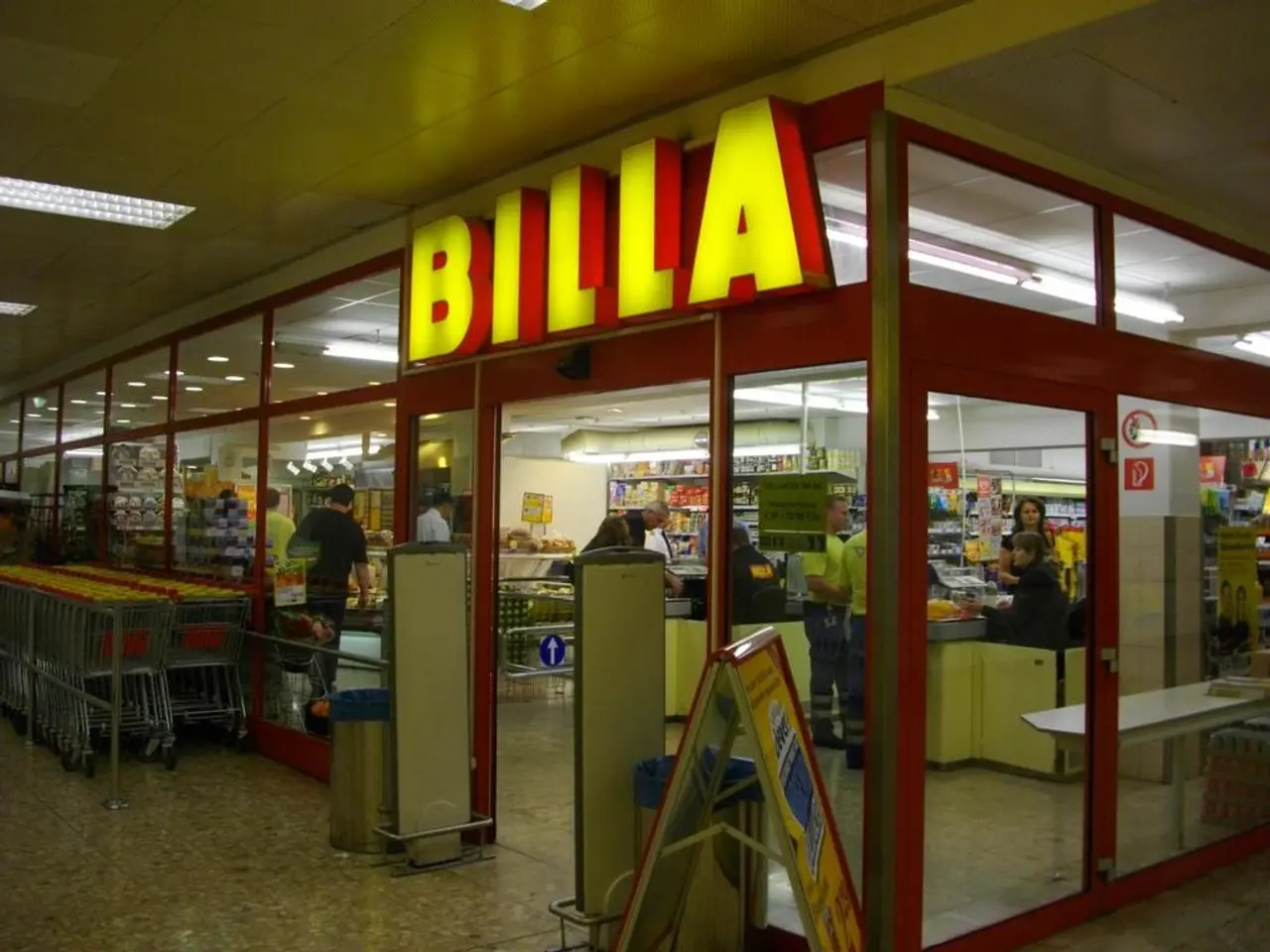In 2025, the Russian Statistical Office (Rosstat) documents the initial week of deflation.
Russia Experiences Weekly Deflation Amidst Economic Challenges
Russia has witnessed a brief spell of deflation in mid-July 2025, with prices of non-food goods seeing a significant drop. According to Rosstat, the country's statistical agency, the deflation rate stood at 0.05% during this period.
The primary driver of this deflation is the strengthening of the Russian rouble, which has had a deflationary effect on the non-food product segment. This segment experienced price declines, contributing to the overall deflation during that week.
The broader economic context includes a recession in non-military industrial sectors, a stagnation expected until 2026, and significant government spending focused on defense rather than productive sectors. While these factors contribute to economic instability, they do not directly cause deflation in the non-food segment.
Among the products experiencing a price decrease are white cabbage (-8.3%), beet (-9.2%), potato (-7.3%), and cucumber (-6.8%). Additionally, fruit and vegetable products as a whole have seen an average price decrease of 3.5%.
However, it's important to note that the overall inflation rate in Russia remains relatively high at 9.19% year-to-date as of July 21, 2025. This suggests that deflation is localized or temporary rather than a broad economic trend.
In contrast, the price of activated charcoal, levomekol, valerian, and analgin has increased slightly, with levomekol seeing a 0.7% increase, activated charcoal a 0.6% increase, and valerian and analgin a 0.2% increase.
Interestingly, this is the first instance of weekly deflation recorded by Rosstat in 2025. The last time weekly deflation was observed was at the beginning of September 2024.
Gasoline prices, on the other hand, have seen a 0.3% week-over-week increase, according to Rosstat data.
The annual inflation rate, as reported by the Ministry of Economic Development, has decreased to 9.17%.
In summary, the weekly deflation in July 2025 results chiefly from a temporary fall in prices of non-food goods driven by rouble appreciation, set against the backdrop of broader economic stagnation and sector-specific recessions.
The strengthening rouble, the primary driver of the deflation, has had a deflationary effect on the finance sector, specifically on the non-food product segment in Russia.
The economic instability, including a recession in industrial sectors and significant government spending on defense, has not directly caused deflation in the finance sector, but has contributed to economic challenges overall.




